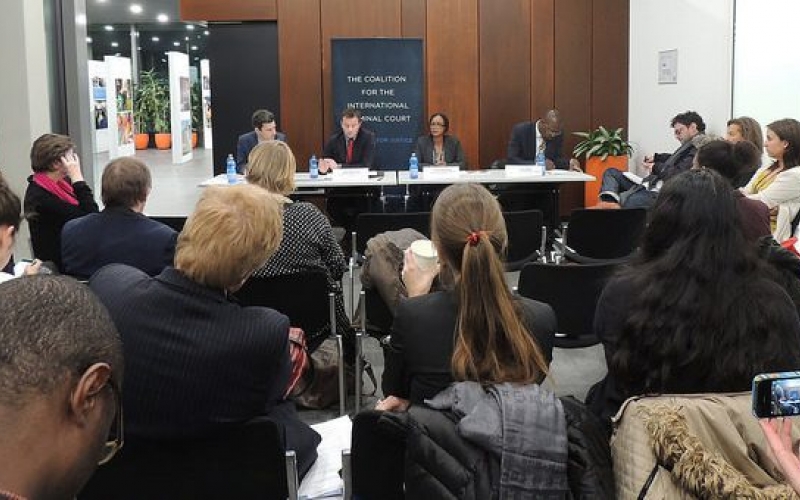Outside observers and the fight against impunity

As part of our 20th anniversary blog series, When hope and history rhyme, Thomas Verfuss, president of the Association of Journalists at the ICC, writes on the work of “outside observers” of international justice (NGOs and journalists) to end impunity for atrocities.
The Association of Journalists at the International Criminal Court – Association de Journalistes à la Cour Pénale Internationale (AJICC-AJCPI) cordially congratulates its sister organization CICC on its 20th birthday. When I say sister organization, I am not only thinking of the many friendships over the years between CICC staff and AJICC members but also about what we have in common and what distinguishes us from others. We are part of the process of the long ICC march, without being at the very centre of it, like judges, prosecutors and defence. CICC and AJICC are both outside observers (though to a certain extent co-creators), analysts that are not employed by the court, outside critics pointing at what goes wrong at a certain instance, with many of us (I am thinking especially of the journalists from the situation countries) having one greater goal in mind: to help the ICC to become the institution that can help certain unfortunate countries to become better places.
My first contact with the CICC was during the 1990s as a journalist covering ICTY and ICTR proceedings. The CICC kept us informed about the negotiations to establish a permanent international criminal court, helped us with the legal expertise of its members, the insights they had gained from their networks and their access to “informals” with diplomats. And when concerns had to be uttered about where the ship was heading, they helped us with their quotable (and their non-quotable) comments.
Once the Rome Statute had been adopted (in 1998) and the 60th ratification was in (in 2002), the process of concrete institution building started in The Hague. The legal expertise of the CICC helped me resolve one of my greatest worries as AJICC president: we did not know which countries would be the first ICC situation countries (unlike at the ICTY and ICTR, as those tribunals were established as a reaction to crimes). Instead we had to “wait” for new crimes to be committed. But what I did know was that it would be war-torn countries and/or countries shaken by internal fighting, most probably countries impoverished by that violence – which means countries whose citizens the Dutch immigration authorities would not be too happy to welcome (being afraid they might want to stay here and benefit from the Dutch welfare state – “vestigingsgevaar” in IND slang).
CICC and AJICC joined forces, very much helped by Swedish lawyer Cecilia Nilsson of the CICC Hague office, to devise a complex mechanism, in consultation with the host state and the ICC, that makes it possible now for African NGOs to send observers to ICC trials in The Hague and for African journalists to obtain visas for The Netherlands to cover the ICC, especially when it deals with their countries.
In a reaction to my draft blog, one AJICC member pointed out: “They are always available and it’s a pleasure to be in contact with them.” And he added: “We should specify, or make clearly appear in the letter, that if the AJICC and the CICC work sometimes together, they are both independent and do not have the same mission. The CICC is clearly close to the ICC, and we do not want to see our independence jeopardized by being seen close to the CICC/ICC.”
Certainly true: the CICC is at the same time critical (at times) of the ICC and close to the ICC. The journalist quoted above is not a journalist from a situation country. Many journalists from situation countries might respond: “I feel so close to the CICC because it participates in the effort to bring justice to the victims and make my country a better place.”
I wish the CICC all the best for the next twenty years.
Let justice be done, worldwide. Therefore, the Court needs its critical observers: NGOs and journalists.
